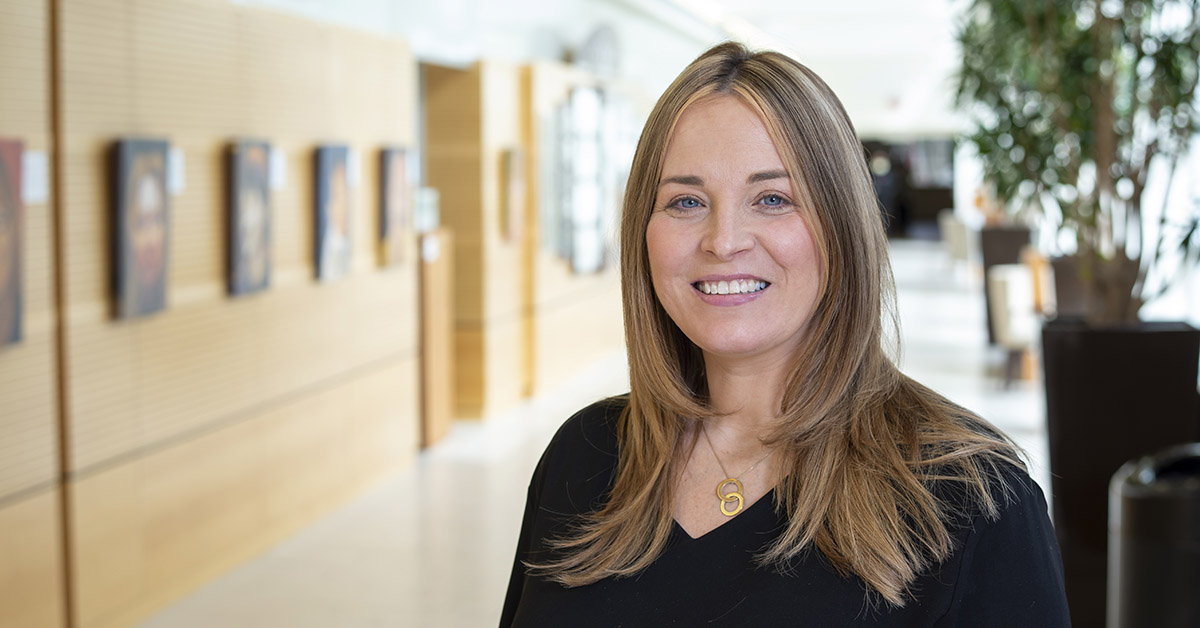Weather Alert: Following the winter storm, all Temple Health hospitals, campuses and clinical locations remain open. Patients will be contacted directly if their visit is affected. Please check TempleHealth.org or FoxChase.org for updates and monitor myTempleHealth for changes to scheduled appointments.
Breadcrumb
- Home
- Fox Chase Cancer Center News
- Fox Chase Cancer Center Study Reveals Cellular Diversity of Esophageal Tissue
Fox Chase Cancer Center Study Reveals Cellular Diversity of Esophageal Tissue

PHILADELPHIA (April 20, 2022)—In a study published today in the prestigious journal Nature Communications, researchers at Fox Chase Cancer Center defined 11 subsets of cells found in the esophagus of mice, information that could potentially help clinicians diagnose or treat certain types of cancer.
The epithelium tissue in the esophagus—a stratified squamous tissue—is comprised of a basal layer that ultimately gives rise to several layers of differentiated cells. Researchers sought to find out whether basal cells were all the same or if any differences existed in their gene expressions.
“This work lays the foundation to address questions about how these cells relate to the development of cancer,” said Kelly Whelan, PhD, senior author on the study and a member of the Cancer Signaling and Epigenetics research program at Fox Chase.
“The next question we have is if we give a mouse a carcinogen, does one particular subset expand or is another particular subset depleted? If so, we would want to know whether cell types that change in the context of cancer are functionally contributing to the cancer process and whether we can target them to help treat or prevent cancer,” she added.
In addition to her position at Fox Chase, Whelan is also an assistant professor of Cancer and Cellular Biology and assistant professor at the Fels Cancer Institute for Personalized Medicine at the Lewis Katz School of Medicine at Temple University. She conducted the study with researchers at Fox Chase, Fels, and several other institutions; Fox Chase is part of the Temple University Health System.
To begin to address their questions, Whelan and her fellow researchers used single cell gene-expression profiling, a tool that identifies all the genes in a cell or tissue that make messenger RNA. These profiles can then be used to identify individual cell types within a complex tissue.
“Essentially, we took more than 40,000 cells from mouse esophageal epithelium and used their individual gene-expression profiles to group them based on their commonality,” she said.
When they started the study, Whelan said the researchers expected to find about three subsets of cells classified as basal, but they actually found six subsets, as well as four that were classified as differentiated. Additionally, one cell type was found to have characteristics of both basal and differentiated cells and was defined as an intermediate cell type.
“We are now working to isolate these individual cell types in order to determine what the cells do functionally in terms of esophageal biology in the normal context first and then in the context of cancer. This study is a fundamental step toward that,” said Whelan.
Fox Chase Cancer Center (Fox Chase), which includes the Institute for Cancer Research and the American Oncologic Hospital and is a part of Temple Health, is one of the leading comprehensive cancer centers in the United States. Founded in 1904 in Philadelphia as one of the nation’s first cancer hospitals, Fox Chase was also among the first institutions to be designated a National Cancer Institute Comprehensive Cancer Center in 1974. Fox Chase is also one of just 10 members of the Alliance of Dedicated Cancer Centers. Fox Chase researchers have won the highest awards in their fields, including two Nobel Prizes. Fox Chase physicians are also routinely recognized in national rankings, and the Center’s nursing program has received the Magnet recognition for excellence six consecutive times. Today, Fox Chase conducts a broad array of nationally competitive basic, translational, and clinical research, with special programs in cancer prevention, detection, survivorship, and community outreach. It is the policy of Fox Chase Cancer Center that there shall be no exclusion from, or participation in, and no one denied the benefits of, the delivery of quality medical care on the basis of race, ethnicity, religion, sexual orientation, gender, gender identity/expression, disability, age, ancestry, color, national origin, physical ability, level of education, or source of payment.
For more information, call 888-369-2427